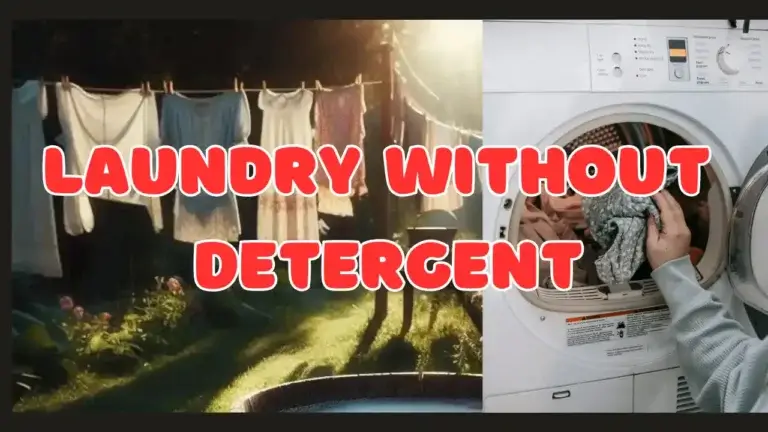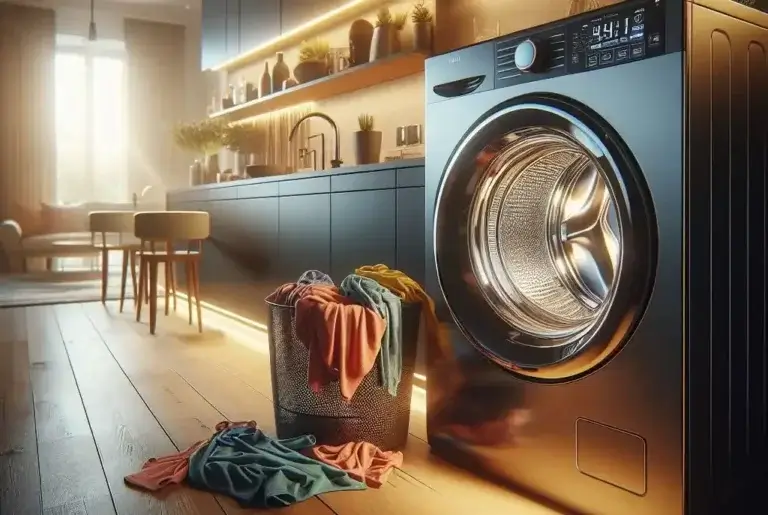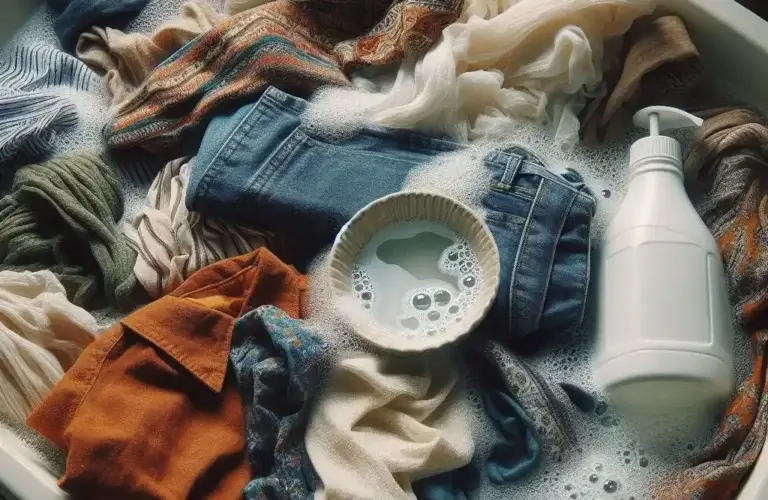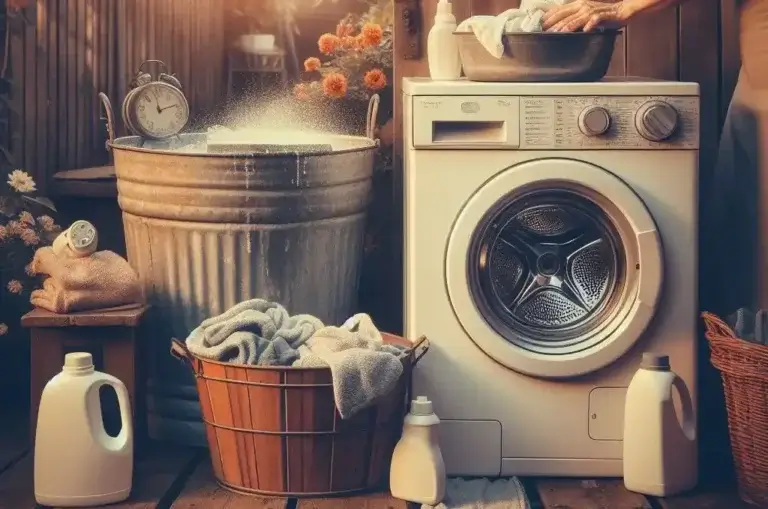Can Dish Soap Remove Stains on Clothes Overnight?
Have you ever spilled red wine, ketchup, grease, or other tough stains on your favorite shirt, pants, or dress? We’ve all been there – frantically trying to remove stubborn stains from our clothes before they set in and ruin the fabric forever.
While laundry detergent does a decent job on lighter stains, getting out oily, greasy messes often requires something stronger. This is why many people reach for dish soap when faced with set-in stains on clothing. Brands like Dawn and Palmolive are formulated to cut through and dissolve grease fast.
But is soaking your clothes in dish soap overnight really effective for removing stains? And more importantly, is it safe for fabrics?
In this comprehensive guide, we’ll cover Can Dish Soap Remove Stains on Clothes Overnight including:
- Benefits of using dish soap on laundry stains
- What types of stains it works best on
- The correct way to apply dish soap for stain removal
- Risks and downsides of using too much dish soap
- When you should avoid using it on clothes
- Safer stain removal alternatives for delicate fabrics
So if you ever wonder if grabbing the bottle of Dawn is the solution to your laundry woes, read on to uncover the truth!
Table of Contents
Why Dish Soap Can Be a Powerful Stain Remover
Dish soaps like Dawn, Palmolive, and Joy have some unique properties that make them quite effective at breaking down and removing oil and grease-based stains, such as:
- Strong detergent formula – The detergents in dish soap are much stronger and more concentrated than laundry detergent. Just a small amount generates tons of suds and cleaning power.
- Grease-cutting ingredients – Key ingredients like surfactants allow dish soap to cut through tough grease and oils.
- Designed for the toughest messes – Dish soap is formulated to break down baked and cooked-on foods – much tougher than most clothing stains.
So while your laundry detergent may struggle with heavy oil and grease stains, the mighty formula of dish soap can power through them with ease.
On especially tough grease spots and oil-based stains like engine grease or makeup, letting your clothes soak overnight in diluted dish soap allows the strong degreasing agents even more time to lift the mess from the fabric.
The Type of Stains Dish Soap Removes Best
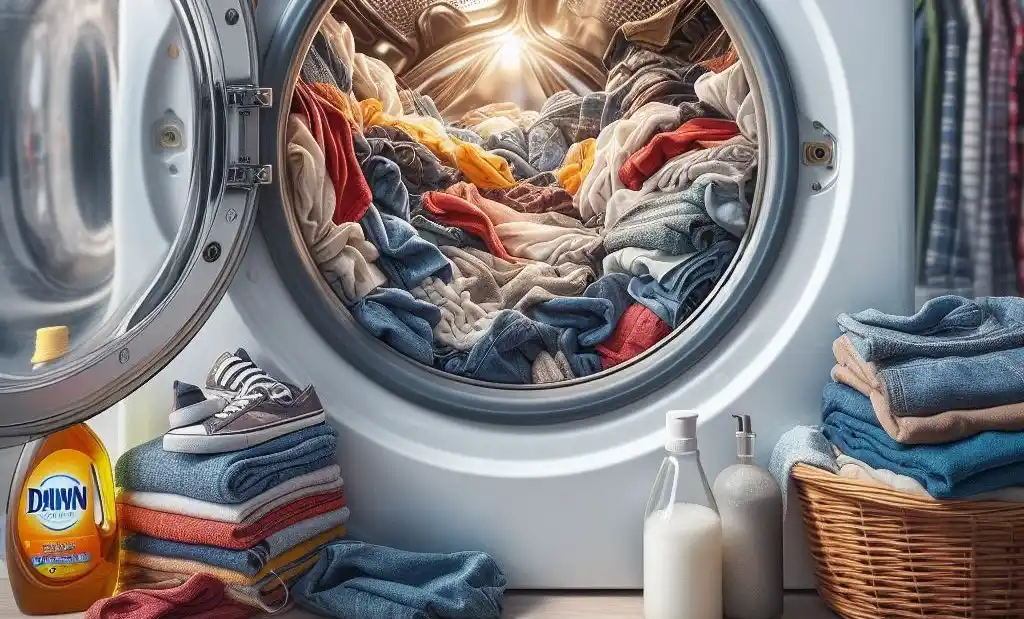
While dish soap has stain-fighting superpowers when it comes to oil and grease, it’s not necessarily effective on all laundry spots and messes.
Here’s a breakdown of the types of stains that dish soap typically works best on:
- Grease stains – Greasy food stains like pizza, burgers, and fries or marks from cooking oils, butter, eggs, etc.
- Motor oil/automotive stains – Hard-to-remove engine greases and motor oils.
- Makeup stains – Oily cosmetics like mascara, foundation, and lipstick usually contain waxes and pigments that can cling to fabric.
- Food oils – Salad dressings, cooking oils like vegetable, olive, or canola oil.
- Grass stains – Dirt and grass particles get embedded with oils naturally present in grass.
- Sap, tar, and wax – These thick sticky substances contain oil and grease components.
- Crayon – The waxy oils in crayons can leave a staining residue when transferred to clothes.
For these types of oil and grease-based stains, dish soap can help lift them out of the fabric for cleaner clothes!
How to Use Dish Soap to Remove Laundry Stains
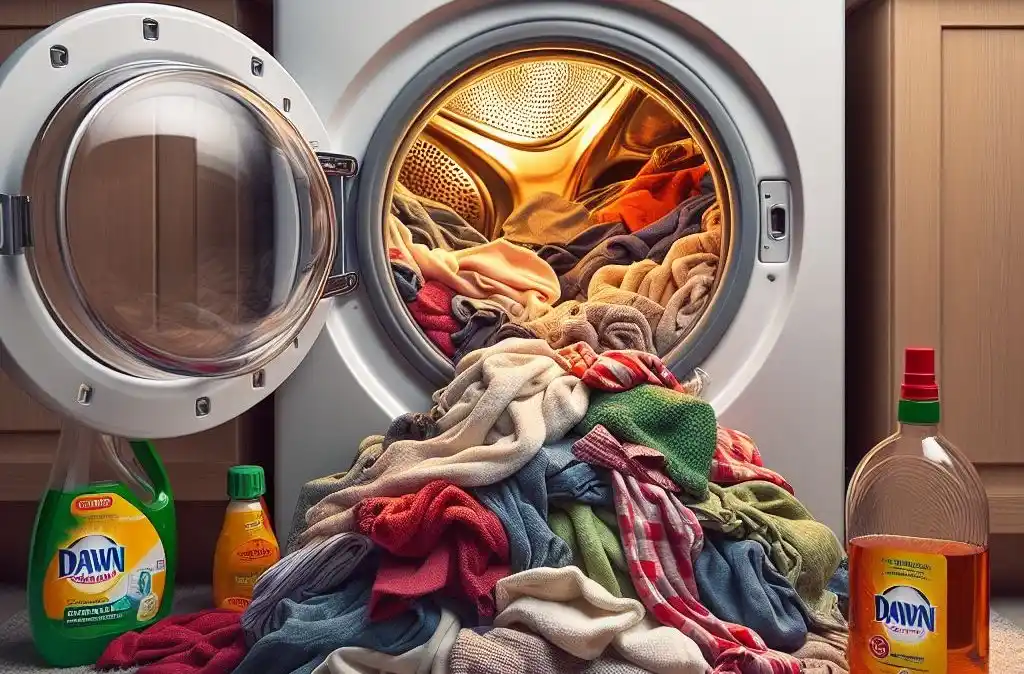
If you have a greasy stain that needs some heavy-duty cleaning power, here is a simple process for using dish soap as a pre-wash stain remover:
What You Need
- Dishwashing liquid – Select a degreasing formula like Dawn, Palmolive or Joy. Avoid ultra concentrates.
- Warm Water – Hot water can set in some stains. Warm water works best.
- Clean Cloth or Sponge – For applying the soap solution.
- Wash Basin or Sink
- Old Toothbrush – Optional for extra scrubbing power on stubborn spots.
Step-by-Step Instructions
- Rinse Backing: Hold the clothing stain-side down under running water to rinse away any excess grease or oils from the back of the fabric.
- Apply Soap: Put a few small drops of dish soap onto the stained area, gently working it into the fabric. Less is more.
- Make Soap Solution: Mix a very small amount of dish soap with warm water in a sink or basin. Stir gently to create suds. You only need a tiny bit of soap – it’s very concentrated!
- Soak the Stain: Place the stained clothing into the soapy solution. For tough set-in stains, let it soak anywhere from 30 minutes up to a few hours or overnight.
- Gently Agitate: Use a soft cloth, sponge, or old toothbrush to gently scrub the stained fabric while soaking, being cautious not to damage threads or seams. The friction boosts stain-dissolving power.
- Rinse Thoroughly: Rinse extremely thoroughly with clean running water until zero suds remain – very important to prevent soap residue on clothes.
- Launder as Usual: Place the garment in the wash. You can add a bit of vinegar or laundry booster to ensure no dish soap remains.
With this process, the powerful grease-cutting dish soap has time to penetrate and lift the oils out of the fabric overnight without risk of damage caused by excessive rubbing or scrubbing.
Risks & Dangers of Using Too Much Dish Soap
While dish soap can treat extra-tough grease stains beautifully, a little goes a very long way. Using excessive dish soap or soaking clothes too long creates a few risks:
- Soap Residue – More soap = more suds. If you don’t rinse thoroughly before washing, leftover suds and soap scum linger in clothes. This leaves a grimy film that attracts dirt over time and hurts softness. Bleach additives can help remove soapy residue.
- Fabric Damage – The strong chemicals that give dish soap its power can be harsh on delicate fabrics. Using too much or soaking too long can warp threads, and cause pilling/fuzzing or fading.
- Excess Wear – Aggressive scrubbing of delicate garments under high suds can grind dirt/oils further into the weave, thinning threads.
- So follow the golden rule when using dish soap on laundry – “Less is More” to prevent damage and residue!
Fabrics You Should Never Use Dish Soap On
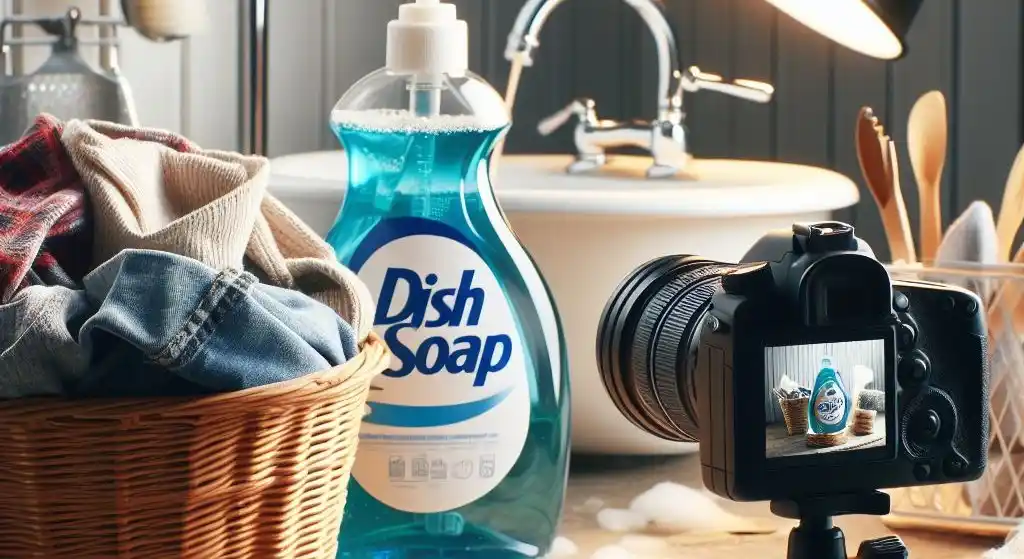
While dish soap might be a laundry stain savior, there are a few fabric types you should never place in an overnight dish soap soak:
- Silk – The fragile fibers and dyes used in these luxurious fabrics can easily warp and run when introduced to harsh detergents.
- Wool & Cashmere – The animal hair fibers that create wool and cashmere fabrics can become damaged and shrink when exposed to alkaline cleaners.
- Spandex, Lycra & Elastic – The stretchy material found in activewear, underwear, and socks often contains latex that can react poorly with degreasing agents.
- Sequins, Beading & Rhinestones – The adhesives and threads securing embellishments to gowns and performance wear can dissolve if soaked, causing loss of sparkle and damage.
- Athletic Shoes & Sneakers – The interwoven layers creating the sole can separate when saturated with degreasing dish liquid. Stick to laundry detergent or specialty shoe wash.
If you are dealing with a challenging stain on any ultra-delicate or dry clean-only fabric, skip the dish soap experiment and take it straight to your cleaner!
Safer Alternatives for Laundry Stain Removal
If after reading the risks of using dish detergents on clothes you decide it still seems too harsh for your liking, check out these safer stain-fighting alternatives:
- Oxygen Bleach – No harsh fumes or chemicals – just the cleaning power of oxygen! Won’t damage colors or fabrics.
- Hydrogen Peroxide – Breaks down tough staining with some bubble power – and you probably already have it at home!
- Baking Soda – A gentle abrasive that lifts stains without damaging fabric when mixed with water into a paste.
- White Vinegar – Acidity cuts through grease and acts as a fabric brightener and deodorizer.
- Sea Salt – Use baking soda as a mild abrasive scrub.
- Club Soda/Seltzer – Bubbly water helps lift some stains.
- Lemon & Lime Juice – Natural acidity can dissolve some stains with some dwell time. Avoid using silk or wool.
These cleansing agents can provide stain-fighting power without putting delicate fabrics at risk of damage from harsh detergents.
The Bottom Line: Can Dish Soap Lift Stains Overnight?
At the end of the day, yes – an overnight soak in diluted dish soap can safely lift many dried-in oil and grease-based stains from hardy fabrics.
The key is using only a drop or two of soap, soaking in lukewarm water, and remembering to rinse excessively thoroughly. This allows the detergent time to penetrate and break down staining without the danger of harming your clothes due to chemical damage or soap residue.
So grab your battle-tested bottle of Dawn or Palmolive the next time grease attacks your favorite t-shirt or pants. With proper dosing and dwell time, dish soap is a proven warrior against those inevitable laundry stains we all confront!
Just be sure to handle delicates with care by checking clothing tags and opting for gentler cleaning alternatives if needed. Because while dish soap might be a miracle solution – some fabrics require a more delicate touch!
FAQs – Using Dish Soap on Laundry
Still, have some burning questions about using dish detergents like Dawn or Palmolive to pre-treat laundry stains? Here are answers to some frequently asked questions:
Is it better to use dish soap on grease stains instead of laundry detergent?
Yes – for oil and grease-based stains, dish soap formulated to cut through cooked-on gunk is much more effective than laundry detergent alone.
What’s the best dish soap for getting stains out of clothes?
Look for formulas made for fighting tough grease messes – Dawn, Palmolive, and Joy dish detergents are all highly rated by laundry pros.
Is Dawn dish soap safe for all fabrics?
No – Dawn is quite effective but the formula can damage more delicate materials like silk, spandex, wool, and special occasion wear with heavy embellishments after prolonged exposure. Always check clothing tags!
Should you wash clothes after using dish soap?
Yes, you need to thoroughly rinse away all soap residue then proceed with regular laundry washing after soaking in dish detergent. A little vinegar in the wash helps ensure no lingering suds or chemicals.
Does soaking clothes in dish soap fade colors?
It can over time with repeated exposure – the same way dish soap might dry out and cause cracking damage to hands with overly frequent use and no gloves. Moderation is key!
The Key Takeaway: Can Dish Soap Remove Stains on Clothes Overnight
While the idea of letting a super powerful dish soap work its magic on clothes overnight sounds tempting, remember – a gradual, gentle approach is best on all fabrics!
Minimize fading, protect seams, and avoid a soapy film clouding clothes by:
- Spot-testing delicate fabrics first
- Using a tiny drop of soap
- Gently dabbing it into the stain
- Soaking in lukewarm water if needed
- Checking often to avoid overexposure
- Rinsing extremely thoroughly before washing
With this careful method, dish soap can help win the battle over laundry stains without leaving “clean” clothes looking dingy or damaged!




